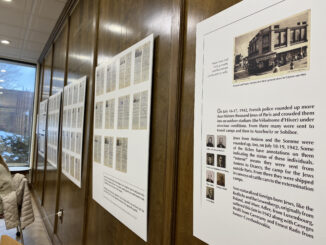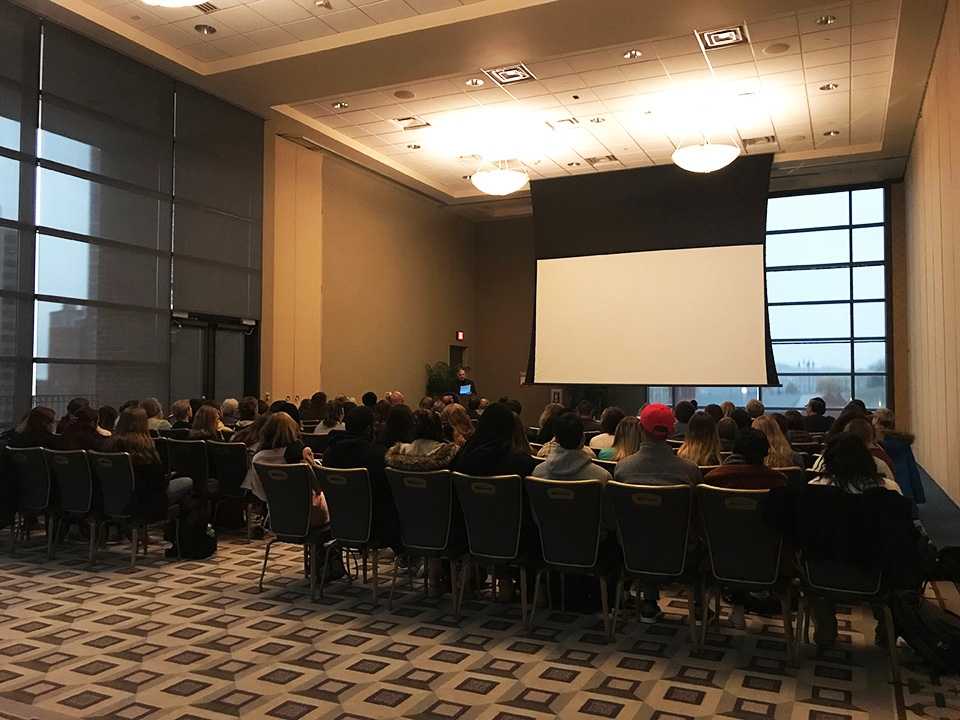
Kellen Stepler | Editor-in-Chief
11/12/2020
Documenting the experiences of his father, a Kindertransport Holocaust survivor, David Hanauer presented a lecture titled “Experiencing Kristallnacht: Addressing Racism through Poetic Ethnography” Monday night as part of Duquesne’s 10th annual Kristallnacht Commemorative ceremony.
Hanauer’s father, John Hans Hanauer, witnessed the events of Kristallnacht on Nov. 9-10, 1938 as a 9-year-old child. Kristallnacht, translating to “night of the broken glass,” was a night where Nazis in Germany burned synagogues, vandalized Jewish homes, shops and businesses and killed almost 100 Jews.
Hanauer’s father also was part of the Kindertransport — the transportation of Jewish German children, separated from their parents, to England before the second world war.
The commemoration, Hanauer said, is a moment in which the past and present come together, and the Holocaust is a call of personal responsibility, to stand up to injustice.
“The legacy of the Holocaust is to be heard, and speak out,” Hanauer said.
A linguistics professor at IUP, Hanauer read a portion of his father’s poem using poetic ethnography, a poetic rendition of a recorded and transcribed oral life history.
As explained by Hanauer, poetic ethnography brings people’s experiences to an audience and makes them come alive.
He said that the language used is “terrifying,” and gives him nightmares when he thinks about it today.
“Regimes like the Nazi regime create on purpose … the psychic terror of what they’re going to do,” Hanauer said.
A man in a Nazi uniform was driving a car when he saw Hanauer’s father. The driver took his father, put him in a car and took him home.
“At that moment, he saw my father not as a stereotype of a Jew, but as a boy,” Hanauer said.
Hanauer explained that there are two conditions for racism to work: to believe, follow and see people as stereotypes and erase humanity, and to behave without humanity and responsibility. He said that Kristallnacht was a turning point before the Holocaust, and made the intention of the Nazis clear — the Nazis didn’t just want to eradicate Jews, but to eradicate the whole culture.
In the case of his father, Hanauer said that at that moment, one individual Nazi behaved with humanity and responsibility.
The lecture also ended with a remembrance of the victims in the Tree of Life shooting in Pittsburgh two years ago.
On Thursday, Nov. 12, Duquesne will host a symposium titled “When Hate Hits Home: Investigating, Prosecuting and Preventing Domestic Terrorism” via Zoom. Registration for the event can be found at duq.edu/forensics.



